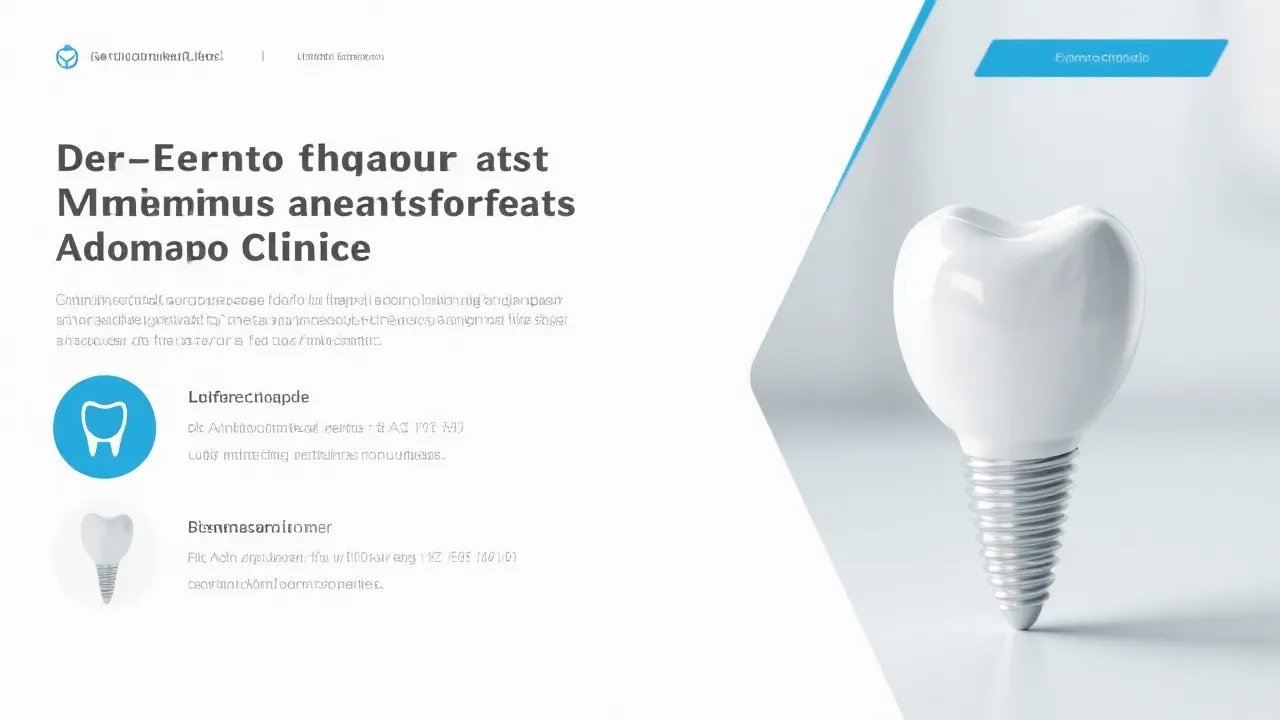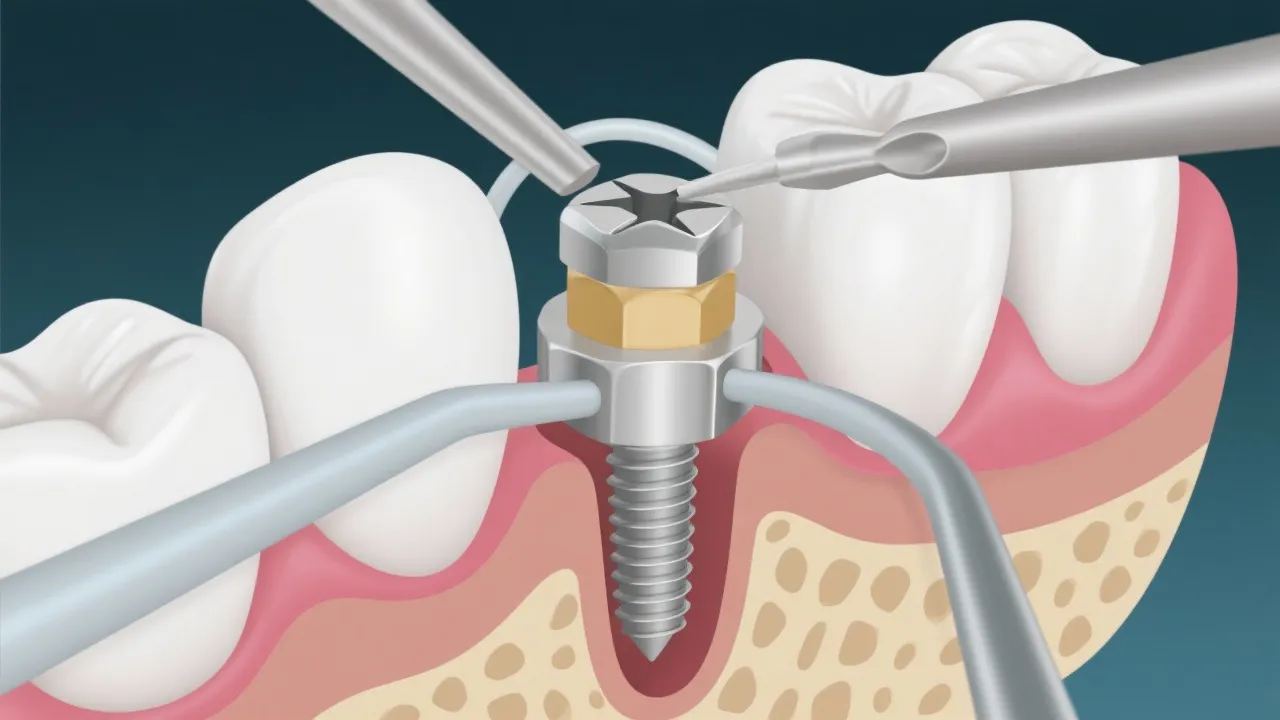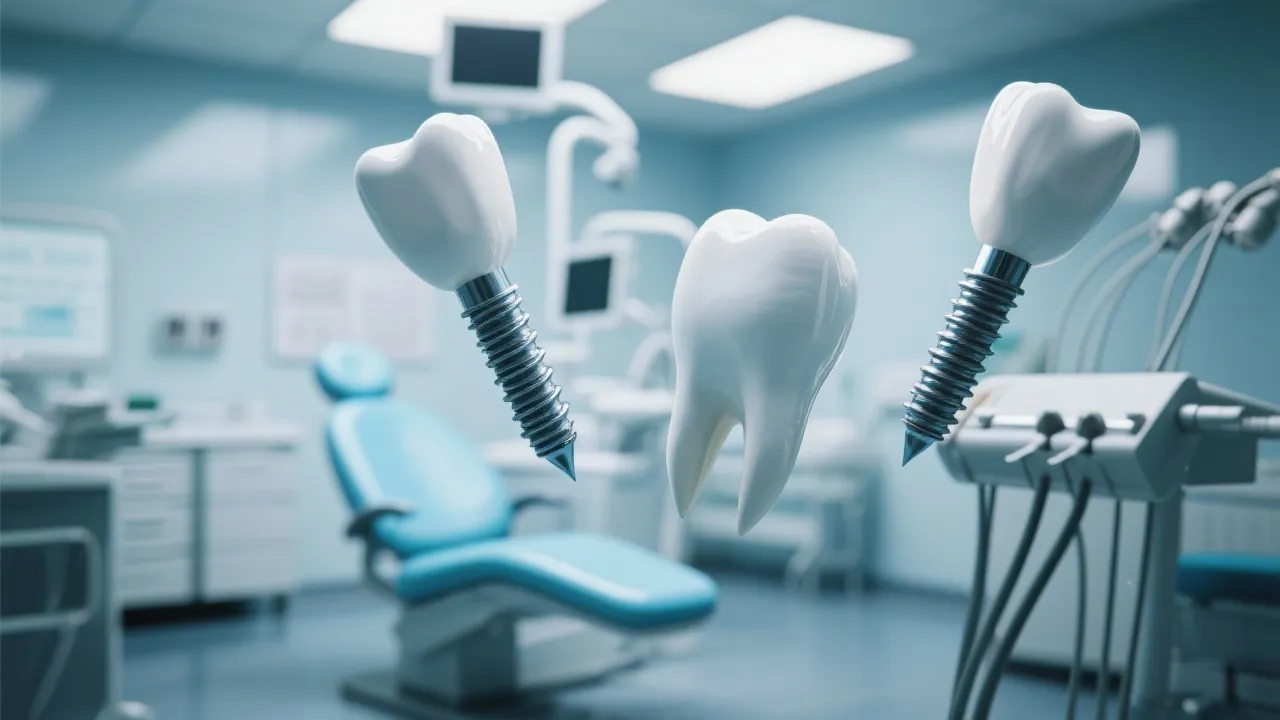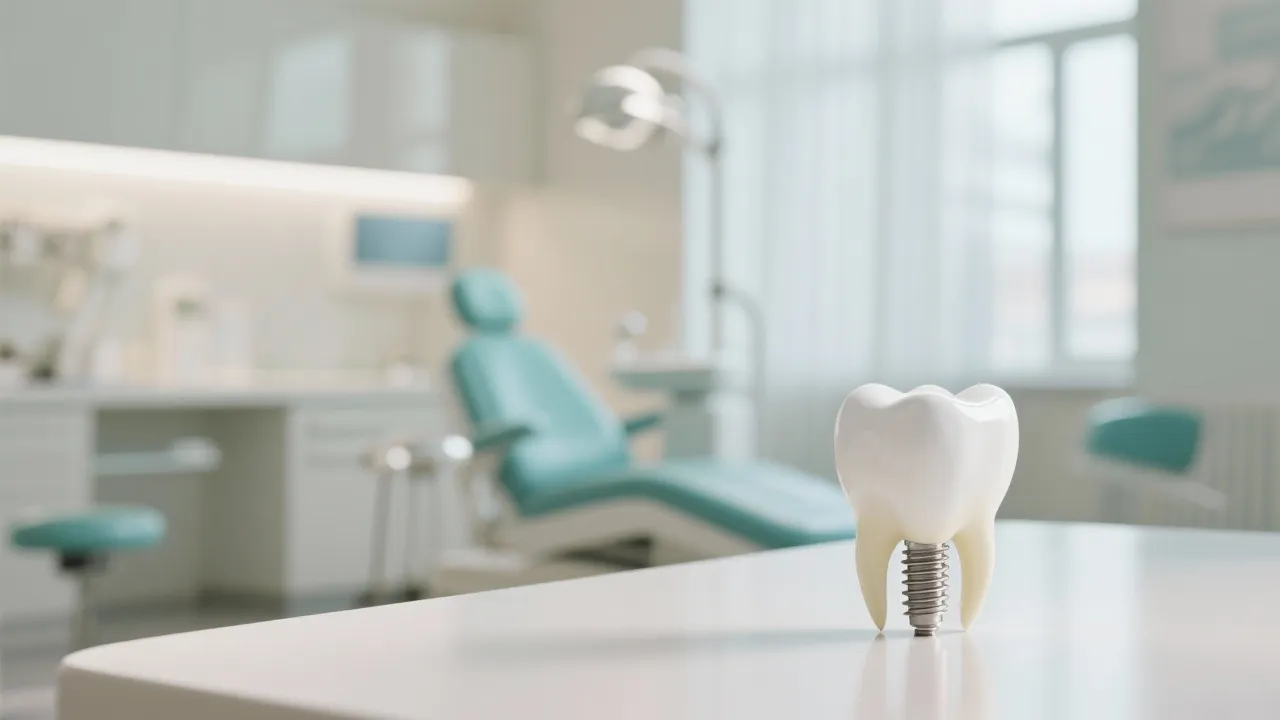Dental Implants in Berlin: A Comprehensive Guide
This guide explores the landscape of dental implants "nearby," providing insight into various dental providers, costs, and essential information for patients seeking implants. Dental implants in Berlin are increasingly popular due to their effectiveness and durability in oral healthcare. This article delves into the types of dental implants available, cost comparisons across different countries, and local expert advice.
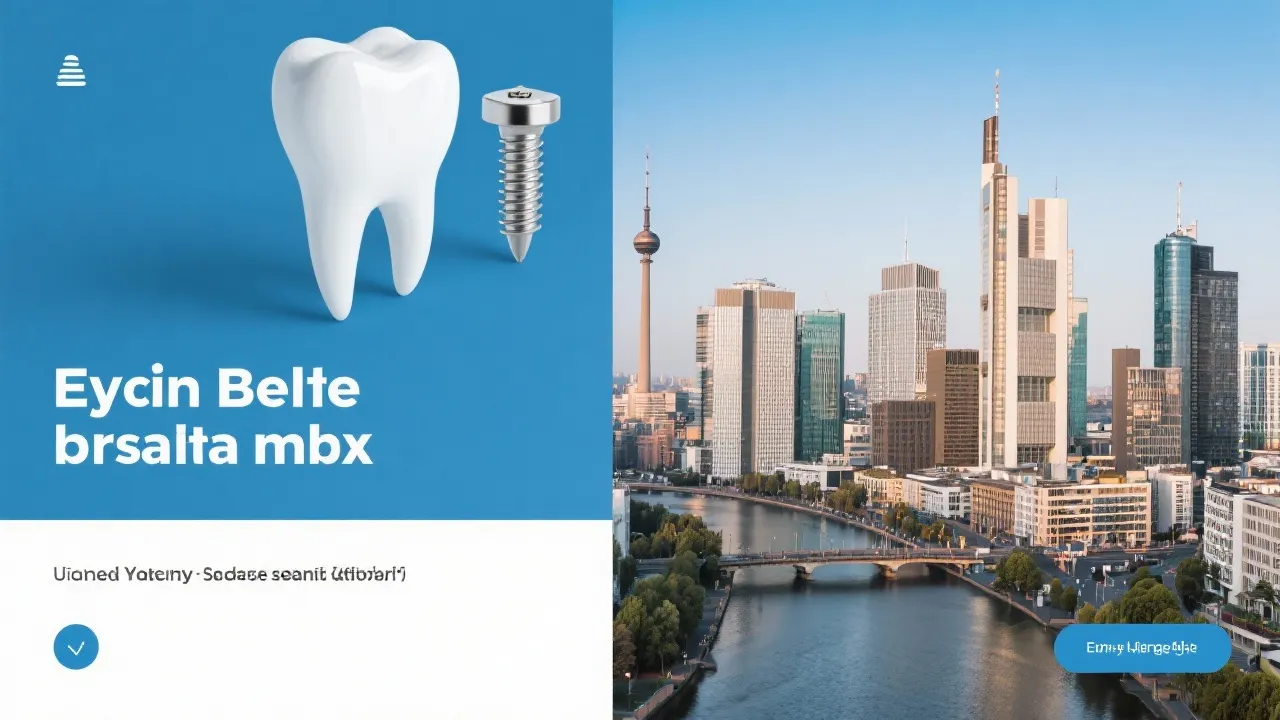
Why Choose Dental Implants in Berlin?
Dental implants have become a sought-after solution for individuals facing tooth loss, offering a stable and long-lasting replacement option. "Nearby," the vibrant city of Berlin hosts a wide range of clinics that provide advanced dental care with skilled professionals and state-of-the-art facilities. Patients opting for dental implants "nearby" benefit not only from high-quality treatments but also from the cultural richness and hospitality of Berlin.
Berlin, a city celebrated for its historical significance and modern innovation, offers a unique environment for dental care. The presence of numerous dental clinics equipped with cutting-edge technology attracts both local and international patients. With easy access to various amenities, patients can explore the city while tending to their dental health, making it an ideal location for implant procedures. The allure of Berlin lies not only in its dental care options but also in its dynamic atmosphere, with countless attractions, restaurants, and cultural experiences awaiting visitors.
An Overview of Dental Implants
Dental implants resemble natural teeth more closely than other prosthetics and are composed of three parts: the implant screw, the abutment, and the crown. The process of fitting an implant involves placing the screw into the jawbone, wherein it serves as an artificial root for the replacement tooth. Unlike dentures, implants offer a fixed solution that functions and feels like a natural tooth.
The materials used for dental implants, primarily titanium, facilitate a process called osseointegration, where the bone fuses to the implant, providing a sturdy foundation. This aspect is crucial as it ensures the stability and longevity of the implant. Additionally, advancements in dental implant technology have led to the development of options for patients with varying bone structures, allowing for a wider range of individuals to qualify for this restorative procedure.
The Implantation Process
The dental implant process involves several stages and requires the collaboration of dental specialists. Initially, an assessment determines the patient’s suitability for implants, followed by a surgical procedure to insert the implant screw. After the implant has integrated with the jawbone, a crown is placed on top to complete the process.
Before surgery, comprehensive imaging, such as X-rays or 3D scans, may be conducted to assess the jawbone's structure and determine the best placement for the implant. This initial evaluation is vital as it allows dental professionals to make informed decisions regarding the patient's specific needs.
After the implant is placed, the healing process can take several months, during which osseointegration occurs. Patients are advised to follow post-operative care instructions carefully, which may include diet modifications and medication adherence, to ensure optimal healing.
Once healing is complete, the abutment, which connects the implant to the crown, is added. Following this, impressions of the mouth are made to create a custom crown that blends seamlessly with the surrounding teeth, ensuring both function and aesthetics. The final step is placing the crown on the abutment, completing the restoration of the patient’s smile.
Comparing Costs: Global Perspective on Dental Implant Costs
The cost of dental implants varies significantly depending on geographic location, local economic factors, and healthcare standards. Here's a comparative table illustrating the cost ranges for single dental implants in different regions:
| Country | Currency | Price Range |
|---|---|---|
| United States | USD | $3,000 - $6,000 |
| United Kingdom | GBP | £2,000 - £2,500 |
| Australia | AUD | AU$3,500 - AU$6,500 |
| Germany | EUR | €2,000 - €3,500 |
| France | EUR | €1,500 - €2,500 |
| Canada | CAD | CA$2,500 - CA$5,000 |
| Mexico | MXN | $30,000 - $55,000 |
This comparison highlights the financial advantages of choosing dental implants in Berlin, where costs are relatively lower than in other countries, particularly the United States and Australia. The combination of affordability and high standard of care makes Berlin a desirable destination for dental tourism.
Finding Affordable Dental Implants in Berlin
To find economically viable options for dental implants in Berlin, patients may consider clinics with competitive pricing models or those supported by insurance plans. Below is a detailed guide on acquiring affordable implant services:
- Research: Investigate and compare various dental clinics across Berlin to identify those offering promotions or deals. Many clinics run special offers for new patients or seasonal discounts that can make the overall cost significantly lower.
- Insurance: Explore the terms of your dental insurance plan to determine coverage for implant procedures. Some plans cover a portion of the expense, which can alleviate the financial burden on the patient.
- Consultations: Schedule consultations with multiple dentists to discuss costs and payment plans. Many clinics offer free initial assessments, allowing patients to get a feel for the clinic and the treatment approach without any financial commitment.
- Payment Plans: Some clinics provide financing options or monthly payment plans. Understanding these options can help patients manage expenses over time, leading to a more accessible approach to dental care.
- Reviews and Recommendations: Seek out patient reviews online or ask for recommendations from friends or family. Personal experiences can guide you toward reputable clinics that offer quality care at reasonable prices.
FAQs
- What are the primary benefits of dental implants?
Dental implants offer durability, improved oral health, and the aesthetic appeal of natural teeth, significantly enhancing the quality of life for patients. They prevent bone loss following tooth extraction, help preserve facial structure, and enable individuals to eat and speak confidently without the fear of their dentures slipping.
- How long do dental implants last?
Implants are designed to last for many years, and with proper care, they can remain functional for 15-25 years or even a lifetime. Regular visits to the dentist for check-ups and maintaining good oral hygiene practices, such as brushing and flossing, play an essential role in prolonging the lifespan of dental implants.
- Is the implant procedure painful?
Local anesthesia is used during the implant surgery, minimizing pain. Post-operative discomfort can be managed with prescribed medication. Although some swelling and tenderness are common, most patients report that the pain is far less than expected and that the benefits far outweigh any temporary discomfort.
- Are dental implants suitable for everyone?
While many individuals are suitable candidates for dental implants, factors such as age, overall health, and bone density are taken into consideration. Patients with chronic illnesses or those undergoing specific treatments may need additional evaluations. Consulting with a specialist often helps to clarify any concerns and determines the best treatment plan.
- What happens if you don’t get dental implants after tooth loss?
Failure to address tooth loss can lead to further dental issues such as bone loss, shifting of surrounding teeth, and changes in bite. Additionally, it could impact an individual's speech and eating habits, leading to a reduced quality of life. Opting for dental implants can effectively mitigate these risks and restore both function and aesthetics.
Please note: The information provided comes from online resources as of October 2023. Prices for dental implants listed here are for reference only and may vary depending on region, clinic, and practitioner.
For further information, you may refer to the following sources:
- Dental Views
- Atlantic Dental Group
- DentaVacation
- ADHP (American Dental Health Plans)
- Union City Mini Dental Implants
- Cigna
- Rubi Odonto
- Odontologia Velasco
- DentalVidas
-
1

Reducing Costs and Enhancing Technology in Solar Panels
-
2

Affordable Life Insurance Options for Seniors
-
3

Comprehensive Guide to Choosing the Right Smartphone
-
4

Unlock Affordable Online Learning: A Seniors’ Guide to Economical Educational Opportunities
-
5

Discover the Keys to Landing Your Perfect Work-from-Home Job: An Essential Guide







